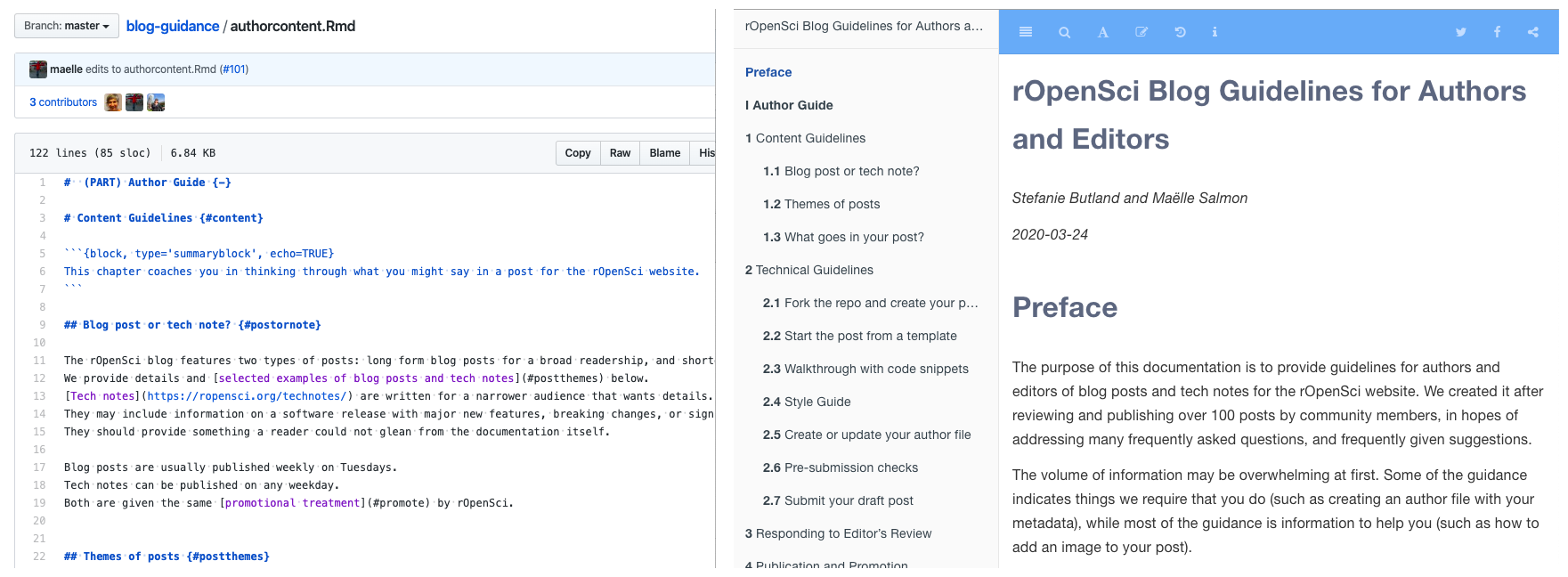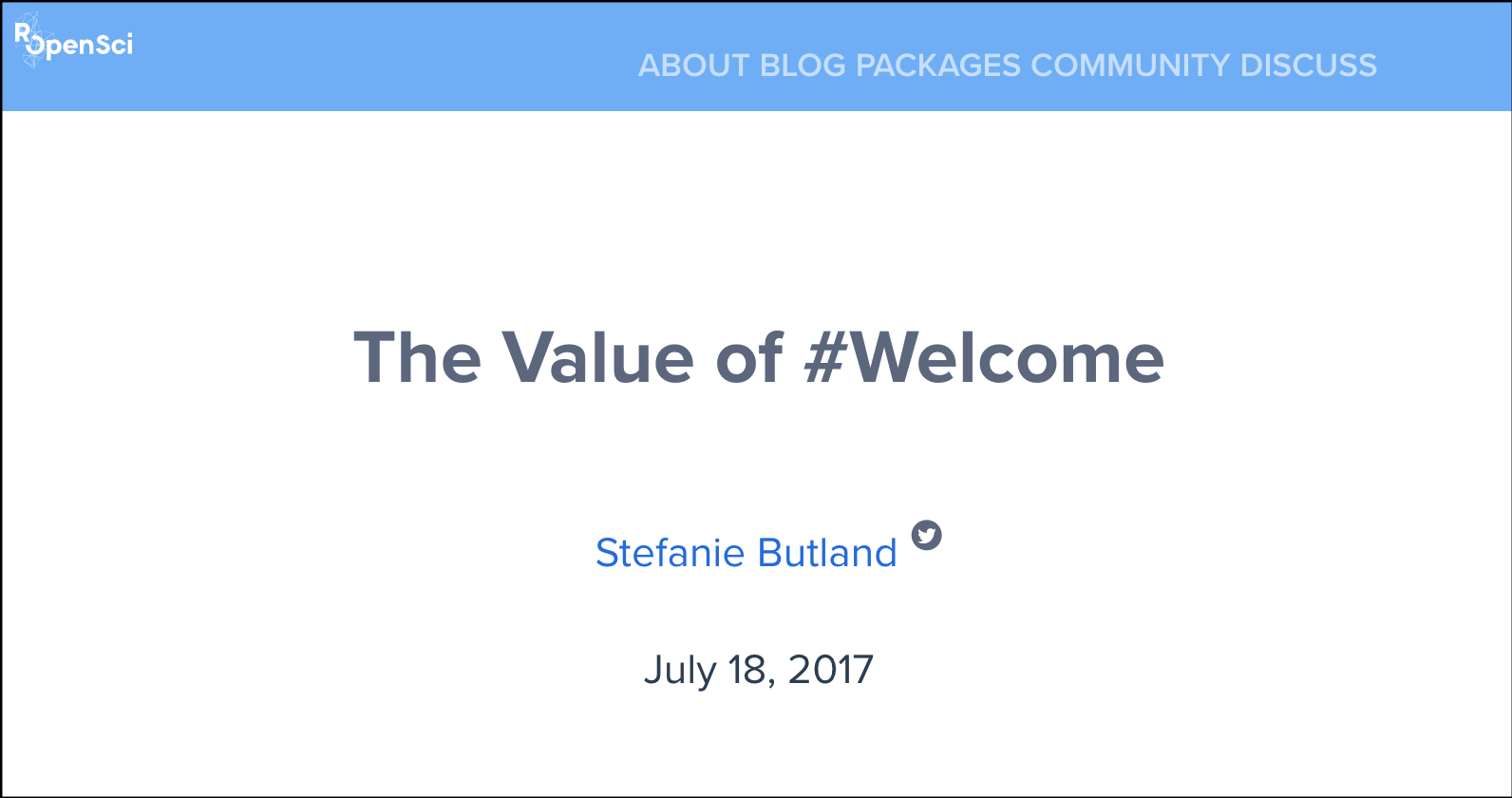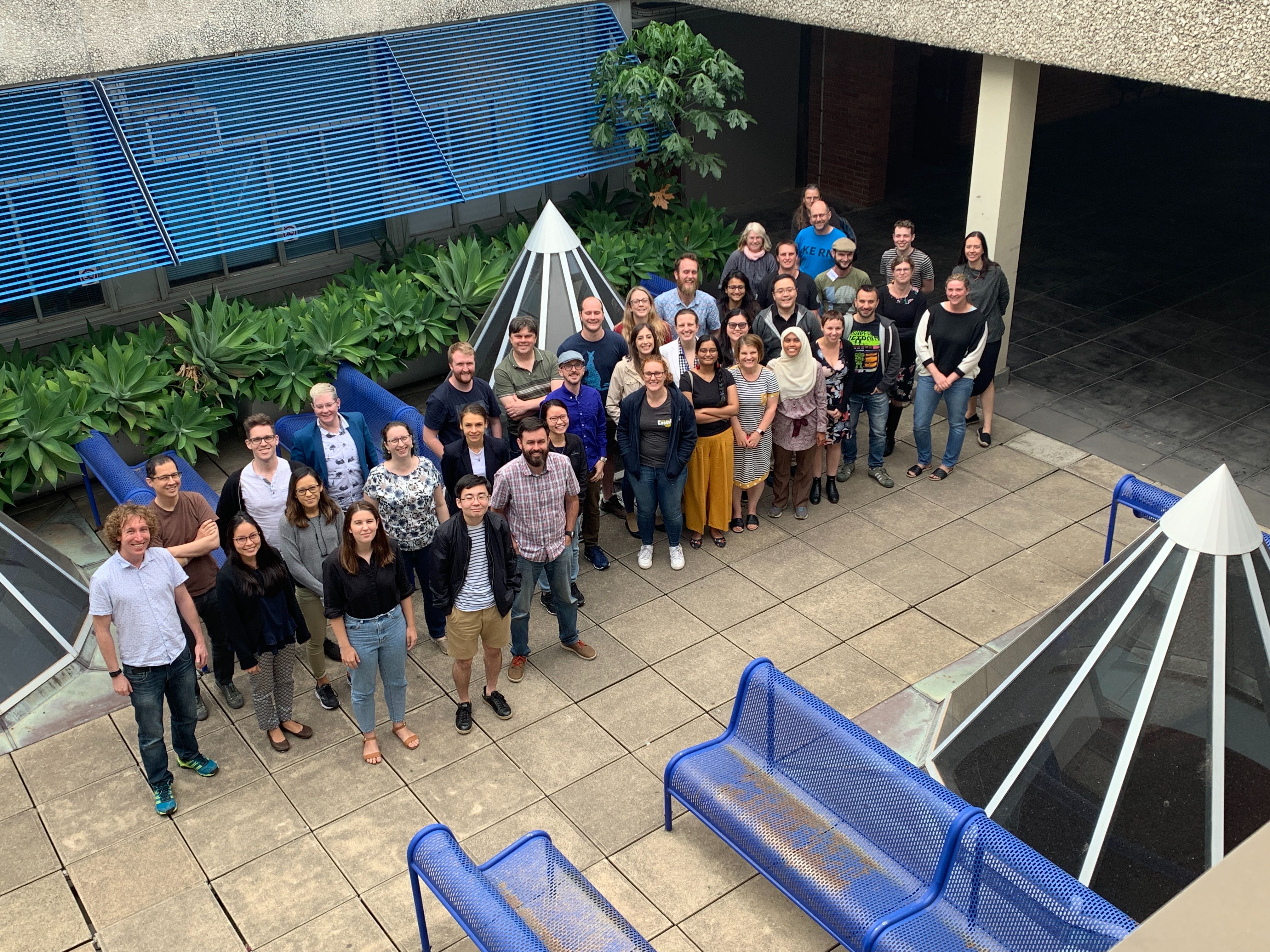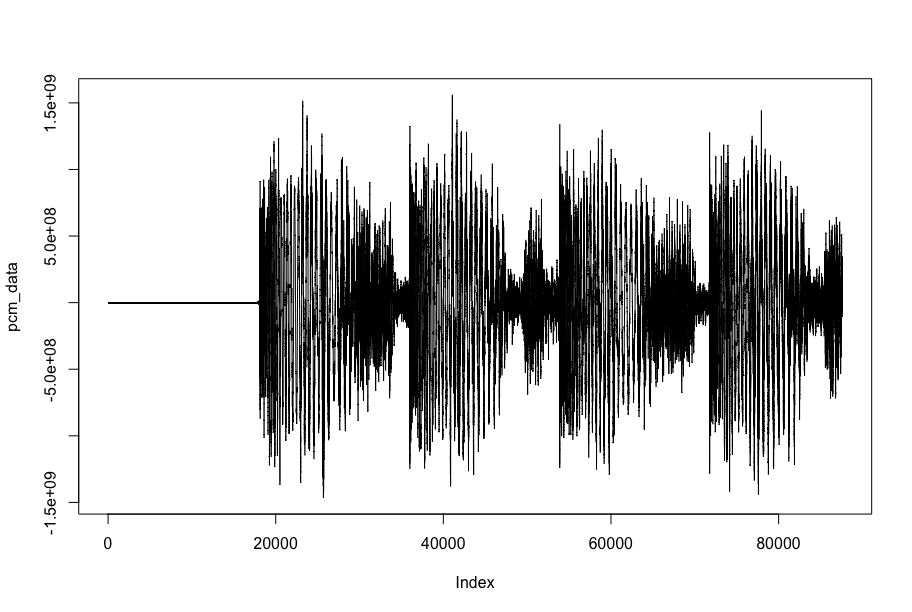
After soliciting, reviewing, and publishing over 100 blog posts and tech notes by rOpenSci community members, we have created the rOpenSci Blog Guide for Authors and Editors to address many frequently asked questions and frequently given suggestions. Technically, we structured the content as a bookdown gitbook.



